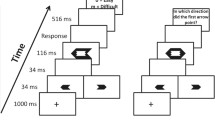Abstract
Seligman and his associates demonstrated that following a series of uncontrollable, stressful events dogs fail to respond on simple tasks. Seligman accounted for this with a learned-helplessness hypothesis, that uncontrollable events produce a subject who perceives that response is useless and whose motivation to respond is weakened. Recently, analogous experiments have been performed with adult human subjects. Impairment of problem solving has been demonstrated following failure on a prior task. The same learned-helplessness hypothesis has been invoked for this result. The present thesis is that these human experiments may be equally well interpreted by Hypothesis Theory. According to Hypothesis Theory, failure produces subsequent impairment in performance not because subjects are helpless but because they are misdirected about the nature of the solution. That is, these subjects are not passive. Rather, they test incorrect hypotheses. Experimental data are presented to suggest the validity of the Hypothesis Theory interpretation.
Similar content being viewed by others
References
Douglas, D., & Anisman, H. Helplessness or expectation incongruency: Effects of aversive stimulation on subsequent performance.Journal of Experimental Psychology: Human Perception and Performance 1975,1 411–417.
Fosco, E., & Geer, J. H. Effects of gaining control over aversive stimuli after differing amounts of no control.Psychological Reports 1971,29 1153–1154.
Hiroto, D. S. Locus of control and learned helplessness.Journal of Experimental Psychology 1974,102 187–193.
Hiroto, D. S., & Seligman, M. E. P. Generality of learned helplessness in man.Journal of Personality and Social Psychology 1975,31 311–327.
Klein, D. C., Fencil-Morse, E., & Seligman, M. E. P. Learned helplessness, depression, and the attribution of failure.Journal of Personality and Social Psychology 1976,33 508–516.
Krantz, D. S., Glass, D. C., & Snyder, M. L. Helplessness, stress level, and the coronary-prone behavior pattern.Journal of Experimental Social Psychology 1974,10 284–300.
Levine, M. Cue neutralization: The effects of random reinforcements upon discrimination learning.Journal of Experimental Psychology 1962,63 438–443.
Levine, M. Hypothesis theory and nonlearning despite ideal S-R-reinforcement contingencies.Psychological Review 1971,78 130–140.
Levine, M. The transfer hypothesis. In R. L. Solso (Ed.),Contemporary issues in contemporary psychology. Hillsdale, New Jersey: Lawrence Erlbaum Associates, 1974.
Levine, M.A cognitive theory of learning. Hillsdale, New Jersey: Lawrence Erlbaum Associates, 1975.
Levis, D. J. Learned helplessness: A reply and an alternative S-R interpretation.Journal of Experimental Psychology: General 1976,105 47–65.
Maier, S. F., & Seligman, M. E. P. Learned helplessness: Theory and evidence.Journal of Experimental Psychology: General 1976,105 3–46.
Miller, W. R., & Seligman, M. E. P. Depression and learned helplessness in man.Journal of Abnormal Psychology 1975,84 228–238.
O'Brien, J. T.Transfer of training with blank trials and noncontingent success. Unpublished doctoral dissertation, State University of New York, Stony Brook, 1976.
Overmier, J. B., & Seligman, M. E. P. Effects of inescapable shock upon subsequent escape and avoidance learning.Journal of Comparative and Physiological Psychology 1967,63 23–33.
Ress, F. C., & Levine, M.Einstellung during simple discrimination learning.Psychonomic Science 1966,4 77–78.
Roth, S., & Bootzin, R. R. The effects of experimentally induced expectancies of external control: An investigation of learned helplessness.Journal of Personality and Social Psychology 1974,29 253–264.
Roth, S., & Kubel, L. Effect of noncontingent reinforcement tasks of differing importance.Journal of Personality and Social Psychology 1975,32 680–681.
Seligman, M. E. P.Helplessness. San Francisco: W. H. Freeman, 1975.
Seligman, M. E. P., & Maier, S. F. Failure to escape traumatic shock.Journal of Experimental Psychology 1967,74 1–9.
Thornton, J. W., & Jacobs, P. D. Learned helplessness in human subjects.Journal of Experimental Psychology 1971,87 367–372.
Thornton, J. W., & Powell, G. D. Immunization to and alleviation of learned helplessness in man.American Journal of Psychology 1974,87 351–367.
Author information
Authors and Affiliations
Additional information
This study was supported by Grant MH 11857 from the National Institutes of Mental Health. The authors wish to thank Mr. James Eder and the students and faculty of Northport High School, Northport, New York, for their cooperation with the experiment.
Rights and permissions
About this article
Cite this article
Levine, M., Rotkin, L., Jankovic, I.N. et al. Impaired performance by adult humans: Learned helplessness or wrong hypotheses?. Cogn Ther Res 1, 275–285 (1977). https://doi.org/10.1007/BF01663994
Issue Date:
DOI: https://doi.org/10.1007/BF01663994




